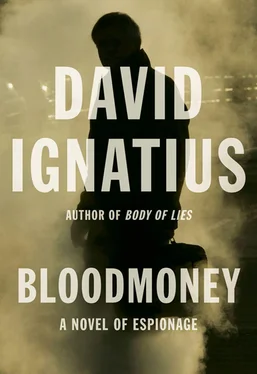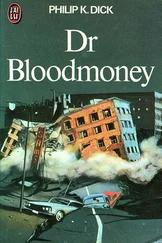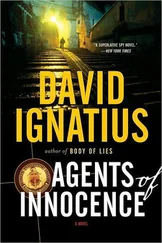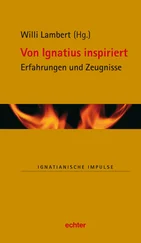David Ignatius - Bloodmoney
Здесь есть возможность читать онлайн «David Ignatius - Bloodmoney» весь текст электронной книги совершенно бесплатно (целиком полную версию без сокращений). В некоторых случаях можно слушать аудио, скачать через торрент в формате fb2 и присутствует краткое содержание. Жанр: Шпионский детектив, на английском языке. Описание произведения, (предисловие) а так же отзывы посетителей доступны на портале библиотеки ЛибКат.
- Название:Bloodmoney
- Автор:
- Жанр:
- Год:неизвестен
- ISBN:нет данных
- Рейтинг книги:4 / 5. Голосов: 1
-
Избранное:Добавить в избранное
- Отзывы:
-
Ваша оценка:
- 80
- 1
- 2
- 3
- 4
- 5
Bloodmoney: краткое содержание, описание и аннотация
Предлагаем к чтению аннотацию, описание, краткое содержание или предисловие (зависит от того, что написал сам автор книги «Bloodmoney»). Если вы не нашли необходимую информацию о книге — напишите в комментариях, мы постараемся отыскать её.
Bloodmoney — читать онлайн бесплатно полную книгу (весь текст) целиком
Ниже представлен текст книги, разбитый по страницам. Система сохранения места последней прочитанной страницы, позволяет с удобством читать онлайн бесплатно книгу «Bloodmoney», без необходимости каждый раз заново искать на чём Вы остановились. Поставьте закладку, и сможете в любой момент перейти на страницу, на которой закончили чтение.
Интервал:
Закладка:
Frankel looked back and saw the two men following close behind. He was too obvious, shirttails out, arms churning. He tripped on a loose brick as he headed up the street, and he stumbled for a moment. Even if they didn’t shoot, this was a sure path to disaster. If he kept running amid this crowd, the police would arrest him even if his other pursuers peeled away. He would be busted either way.
He saw an opening to his left, Nitinsky Street, and peeled off toward it. The two men followed. As Frankel ran up the street, he saw a third man coming toward him to block his escape. He ducked into a dark alley that was lined with trash bins from the neighboring buildings.
The police found Frankel’s body in the alleyway a little after six p.m. He had struggled when his pursuers tried to drag him off, people in offices and apartments above told reporters. As he tried to flee, he was shot point-blank, three bullets, a silencer on the gun.
The newspapers described two of the killers: dark features, swarthy, they all but announced they were from Chechnya. But like so many crimes in the new Russia, this one remained unsolved. The assassins disappeared into the lawless second city of the capital, where they owned the police. The spokesman for the Moscow prosecutor’s office said it looked like the work of the Chechen mafia, but people always said that about unsolved crimes.
17
Jeffrey Gertz was watching Morning Joe in the bathroom, trimming his beard and wondering what jacket to wear, when he heard the news bulletin that an American businessman had been shot in Moscow. They didn’t give a name, and it didn’t occur to him that the victim might be one of his own people. Gertz had just returned to Los Angeles from Washington the night before, and was thinking mainly about whether to go to Las Vegas that weekend. As he was dressing, the phone rang. It was Albert, the new watch officer in Studio City. There was a hitch in his throat, and he had to cough before he could speak.
“Sorry to bother you at home, Mr. Director.” He had only been in the job a few days and addressed Gertz as if he were a cabinet secretary.
“What is it, Albert? I’m getting dressed.”
“An American has been shot in Moscow. It’s on the wires. Mr. Rossetti thinks he may be one of ours. He said you would want to be informed.”
“I just saw that story on television. That’s our guy? What the hell?”
Gertz was unsteady for a moment, and sat down on the leather bench in his dressing room. He had a towel wrapped around his waist, but it fell away. He muttered, more to himself than to the watch officer.
“Christ, it must be Frankel.”
“Roger that, sir. The embassy has someone at the morgue. The Russians have ID’d the victim as Alan Frankel, birthplace Denver, date of birth May twenty-sixth, 1980. His business cards say he runs an ad agency in Amsterdam named Kiosks Unlimited. Headquarters called Mr. Rossetti a few minutes ago, and he called me. I checked. All that information matches our operational files. What should I do?”
“Nothing. Wait for me. Don’t talk to Headquarters until I’m there. And don’t talk to Mr. Rossetti, either. He’s not your boss, damn it.”
There was a pause on the other end. The watch officer wasn’t sure what he was allowed to say.
“People are kind of upset here, Director. We’ve gotten two messages from the field already, asking what’s up. What should I tell them?”
“Tell them I’m on my way in. Tell everyone to chill out for a few minutes. This may not be what we think it is. No messages to anyone until I get there.”
“Yes, Director.”
Gertz felt better giving an order, even if it was just to shut up and sit tight. He thought a moment. The story was moving so fast, he needed to backstop the cover right away.
“One more thing,” said Gertz. “Call Tommy Arden in Support and tell him to make sure someone in Europe is answering the Kiosks Unlimited phone in Amsterdam. This person should confirm Frankel’s cover biography, but that’s it. Express shock, grief, ‘How could anyone have done this to Mr. Frankel,’ et cetera. Do that now, and tell people to stay cool. I’ll be there in thirty minutes.”
Gertz finished dressing, a plain blue blazer instead of the summer-weight plaid he’d been planning, and a tie, too. He stood for a moment staring out the window, trying to collect his thoughts.
His apartment was on the top floor of a building on the eastern edge of Beverly Hills, almost to West Hollywood. One bank of windows looked across Doheny Drive toward the leafy suburbs and the hills. Another looked down Santa Monica Boulevard toward the sprawl of downtown, half hidden by the smoky mist of the morning. He took a Red Bull out of the refrigerator, and then popped one of the energy pills his homeopathic counselor had recommended.
Gertz threw his briefcase in the Corvette. Though it was a sunny day, he left the top up. He turned on the local NPR station and listened until they mentioned the Moscow shooting. Then he turned the radio off. He didn’t want to hear.
Gertz knew how to take a punch. That was part of why he had risen so quickly in the agency. He had been ready to take risks when other people were worrying about whether their legal insurance was paid up. When people had decided the CIA was so messed up it was time to start over, Gertz had been there, the resilient one, ready to take the enterprise deep underground.
This was a combination punch: Two members of his organization had been targeted in two weeks, and he didn’t know why. He felt bad about the people, in a generalized sort of way, but he barely knew them. He felt worse for himself. If he didn’t draw a tight circle now and control information, the structure he had created would begin to wobble. People would ask questions, secretly at first, but that would lead to other questions. The garment would begin to fray along the seams, and then-if people really began to pull-it would come apart.
It was the same as with any flap, Gertz told himself. The best solution was to hunker down and wait for it to go away.
When Gertz arrived at the office block on Ventura Boulevard, the facade was bleached white in the morning sun. Inside, there was a hum of anxiety: People had been waiting for the boss to arrive, and now they wanted him to give orders. There was a low-level panic. The news had spread rapidly; how could it be otherwise? People worried that their invisible organization had somehow come under a spotlight, and that they all were vulnerable.
Gertz did the one thing nobody would have expected, which was to act normal. He said hello to the secretaries by name, and then went into his office to read the message traffic. He summoned Arden for a report: The calls to Kiosks Unlimited in Amsterdam were being answered by the reports officer who worked with Frankel as his secretary; she was quoted in the latest news reports expressing shock and sorrow. The dam was holding, at least for the moment.
Gertz placed a call to Cyril Hoffman at Headquarters. Hoffman didn’t know much, either, but he agreed that in a situation of uncertainty, the best thing to do was for everyone to keep their mouths shut. The best damage control policy, in this case, was to do nothing.
“What was your man working on in Moscow, anyway?” asked Hoffman. “Odd spot to visit.”
“Pakistan. He was meeting a diplomat.”
“Do I know about this?”
“Of course you do. You know about everything. If you want details, check the White House.”
“Why was he killed? This sounds like another Karachi problem. He’s dead, by the way, your man Egan. Confirmed. Roger that. I think this second one was a mafia hit.”
“You’re joking, surely,” said Hoffman.
Читать дальшеИнтервал:
Закладка:
Похожие книги на «Bloodmoney»
Представляем Вашему вниманию похожие книги на «Bloodmoney» списком для выбора. Мы отобрали схожую по названию и смыслу литературу в надежде предоставить читателям больше вариантов отыскать новые, интересные, ещё непрочитанные произведения.
Обсуждение, отзывы о книге «Bloodmoney» и просто собственные мнения читателей. Оставьте ваши комментарии, напишите, что Вы думаете о произведении, его смысле или главных героях. Укажите что конкретно понравилось, а что нет, и почему Вы так считаете.












